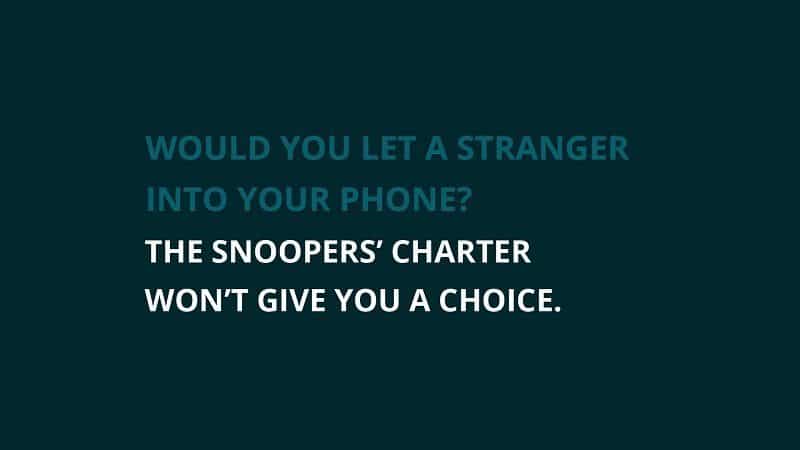Human Rights Group Pranks UK Government over Snoopers’ Charter
Ashley Allen / 9 years ago

The UK Government continues to press ahead with its proposed Investigatory Powers bill – nicknamed the Snoopers’ Charter – which will give police and intelligence agencies unrestricted access to the text messages, e-mails, location data, and internet browser history of each and every person in the country, despite protest and criticism over the potential infringements on privacy and human rights.
In response, human rights group Liberty, in conjunction with creative agency Don’t Panic, has staged a cutting prank designed to expose exactly how much the Snoopers’ Charter would breach the privacy of every UK citizen. The video, titled “Show me yours…” features comedian Olivia Lee approaching ordinary members of the public and demanding access to their smartphones:
“People in Britain value their personal privacy – even Home Office staff are unwilling to reveal their phone records for no good reason,” Bella Sankey, Policy Director for Liberty, told International Business Times.
“But the government’s latest Snoopers’ Charter would make everyone’s online activity available to the authorities to speculatively trawl through without good reason and without us ever being told.
“It will all but end online privacy, put our personal security at risk and swamp law enforcement with swathes of useless information. People need to make it clear to MPs – we don’t want the government building profiles of our personal lives with no justification and this bill must stopped.”
“As our film shows, people naturally recoil when a stranger asks to see their phone,” said Larry Holmes, Liberty’s Campaign Coordinator said. “There’s a reason we use encrypted services and protect our phones and computers with passwords and codes.
“Our emails, texts, online chats and browsing history paint an incredibly detailed and private picture of our lives, and we don’t want a stranger poring over them,” he added. “This latest Snoopers’ Charter is a world-leading embarrassment – it will all but end online privacy, put our personal security at risk and swamp law enforcement with too much information. The Home Office would be wise to ditch it and come up with the targeted, intelligence-led system we need to keep us safe and respect our rights.”



















